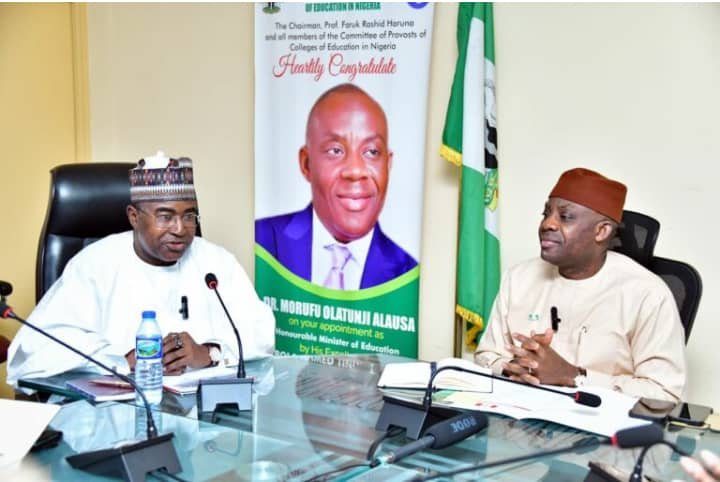
By Ameh Gabriel
In a decisive move to tackle the rising wave of drug abuse among Nigerian youths, the National Drug Law Enforcement Agency (NDLEA) and the Federal Ministry of Education have agreed to introduce mandatory drug tests for students of tertiary institutions and to embed comprehensive drug education in the national school curriculum.
The landmark agreement was reached during a strategic meeting between the NDLEA Chairman/Chief Executive, Brig. Gen. Mohamed Buba Marwa (rtd), and the Minister of Education, Prof. Maruf Olatunji Alausa, held in Abuja on Wednesday.
Speaking at the meeting, Gen. Marwa emphasized the urgency of safeguarding Nigeria’s youth from the devastating impact of substance abuse. “We are fighting for the souls of our children,” he stated. “Drug use is a critical driver behind rising insecurity, from terrorism to banditry. Many of these criminal acts are fueled by drug influence.”
Marwa, while calling for a united front to address the crisis, proposed three core areas of collaboration:
- A review of the secondary school curriculum to reflect new and emerging trends in drug use, including psychoactive substances.
- The introduction of stand-alone drug abuse prevention programmes in schools—outside the curriculum—including lectures, competitions, and parental engagement.
- The implementation of a drug test policy in tertiary institutions, starting with fresh intakes, returning students from vacation, and random screenings.
“These steps will serve as deterrents,” Marwa explained. “If students know they’ll be tested, many will think twice before using drugs. The consequences need not always be disciplinary; awareness alone can be preventive.”
He cited alarming statistics, revealing that under the administration of President Bola Ahmed Tinubu, the NDLEA had made over 40,000 arrests, secured 8,682 convictions, and seized over 5,500 metric tons of illicit substances, including more than one billion pills of opioids like tramadol, valued at over ₦1 trillion. He also disclosed ongoing plans to build seven new rehabilitation centres and establish one model rehab facility per geopolitical zone.
Responding, the Minister of Education, Prof. Alausa, applauded Marwa’s leadership and unwavering commitment to public service. “Drug abuse is destroying the future of our young people. They drop out of school, lose critical thinking ability, become unemployable, and often end up in a cycle of crime and dysfunction,” he said.
Prof. Alausa endorsed the proposed collaboration, announcing immediate actions:
Creation of a Substance Use Prevention Unit within the ministry
Formation of an inter-ministerial technical working group between the Ministry of Education and the NDLEA
Integration of drug education in the new secondary school curriculum, with plans to extend it to the primary level
Design of continuous drug awareness programmes in schools nationwide
Roll-out of mandatory drug testing in tertiary institutions
“We must act quickly and decisively. The drug menace is a ticking time bomb, and the time to defuse it is now,” the minister declared.
In further support, the Minister pledged to engage relevant education agencies, including UBEC and TETFund, to partner with the NDLEA Academy in Jos to deepen drug education across all levels of education.
Concluding the meeting, the Permanent Secretary of the Ministry, Mr. Abel Oluwamuyiwa Enitan, officially announced the establishment of the new Substance Use Prevention Unit, signaling the immediate commencement of joint implementation efforts between both institutions.






